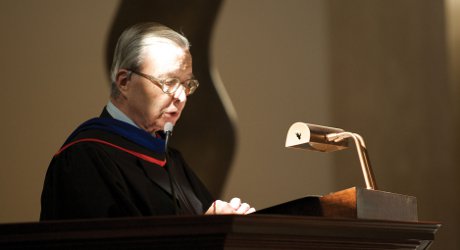- Home
-
About
 Fidelity & Excellence
Fidelity & ExcellenceThomas Aquinas College is unique among American colleges and universities, offering a faithfully Catholic education comprised entirely of the Great Books and classroom discussions.
-
A Liberating Education
 Truth Matters
Truth MattersTruth, and nothing less, sets men free; and because truth is both natural and supernatural, the College’s curriculum aims at both natural and divine wisdom.
-
A Catholic Life
 Under the Light of Faith
Under the Light of FaithThe intellectual tradition and moral teachings of the Catholic Church infuse the whole life of Thomas Aquinas College, illuminating the curriculum and the community alike.
-
Admission & Aid
 Is TAC Right for You?
Is TAC Right for You?Do you enjoy grappling with complex questions? Are you willing to engage in discussions about difficult concepts, with the truth as your ultimate goal?
-
Students & Parents
 Mind, Body & Spirit
Mind, Body & SpiritThere is always something to do at TAC — something worthwhile, something fulfilling, and something geared toward ever-greater spiritual and intellectual growth.
-
Alumni & Careers
 What Can You Do with a Liberal Education?
What Can You Do with a Liberal Education?Nothing speaks more to the versatility of the College’s academic program than the good that our alumni are doing throughout the Church and the world.
- Search
- Giving
“He Wanted You to Ask Him Questions” — An Alumnus Scholar Recalls Marcus Berquist

Note: Dr. Matthew J. Peterson (’01), vice-president of education at The Claremont Institute and editor of The American Mind, recently re-published the following tribute to late Thomas Aquinas College founder Marcus R. Berquist on November 2, the eighth anniversary of Mr. Berquist’s death. Dr. Peterson originally published the article in 2010.
Thoughts on Marcus Berquist, May He Rest in Peace
by Dr. Matthew J. Peterson (’01)

His family no doubt bears the weight of his absence, and our prayers and love are with them. The rest of us share in this loss in lesser degrees, as they shared him with us.
Our sorrow at the death of great men is our sorrow, not their own. Our sorrow arises in part from a recognition that such men are completely and utterly irreplaceable. They are absolutely unique and ultimately inimitable. They do not merely discharge their obligations; they fulfill them to the overflowing, stretching the scope of their duty to fit the extent of their talent. They do not pass on their fire to a few or one other, but they enkindle innumerable flames with the fire they first received. They do not just complete their race, they complete their race in a manner well adapted to their person and circumstance in a way that moves all those around them towards the finish line. Human life is a preparation for death, and their last gift is inevitably the example of their own death, bequeathed to us, the living. They leave this world victorious, leaving us to marvel at the consistent purpose which marked the particular way they walked upon the earth. Their leaving is sorrowful on account of the overwhelmingly awareness we have of the absence of their presence, which had previously existed in an accessible manner for us — even if only as some fixed, guiding star.
Mr. Berquist’s quiet manner was the surface of deep-seated humility and discipleship. The docility of his soul toward truth served as an unshakable foundation from which the strong and steady gait of his mind moved indomitably toward wisdom. He did not simply fulfill his vocation as teacher; he became a founder of a college, birthing and then shaping and guiding a community of friends united in pursuing that same truth, partaking in the same common goods. Others may have enkindled wonder and love of truth in us, but the very stance of his soul towards the universe taught generations of us what it meant to act upon a love of wisdom with the highest part of ourselves, and how this action might further enflame such love. He ordered his life such that he habitually contributed his talent and person toward the reestablishment of a tradition of thought revolutionary to the modern world. The founding of Thomas Aquinas College was a tremendous creative act: the bringing together of the study of the great books, the liberal arts, and the thought of St. Thomas Aquinas in a manner adapted to the needs of our era. His participation in this founding gave generations of students a beginning that made their own quest for wisdom and virtue possible, grafting them into the vines of the Western tradition of Christian thought.
These are the sort of gifts which, once given and received, are entrusted to us; they are not the sort of gifts which can be paid back. They are, rather, gifts we can only attempt to pay forward, and most likely not in kind. They are the sort of gifts which we must protect, treasure, and become good stewards of, adding to them in whatever small, complementary ways we can. Even should we give similarly priceless gifts to others, our gifts will never be the same ones he gave, which is partly why we feel sorrow at his absence.
***
In many ways, I am among the least of his students, and many, perhaps most, of the rest of our community knew him better than I. Yet despite an awful performance in his sophomore lab class, I learned as much listening to him in that class as I have in any other, and perhaps more. The power of his thought for those who listened and asked questions of him was such that he molded the way in which our souls receive what is. A friend and fellow student, Glen McCarthy, arranged for him to guide a small group of us through St. Thomas’ treatise on law the summer before my senior year. This too was formative in many ways that cannot be expressed, nor even sometimes remembered directly as time goes by, but it nonetheless profoundly shaped the thought of those present, both through what he taught and how he taught it.
I have watched and interacted with many professors since, in my business and in the academy. Some were great speakers. Some have CVs 30 pages long filled with their accomplishments. Mr. Berquist never finished his Ph.D., and to my knowledge he never published so much as a book review in a scholarly journal. He did not have the polished or hyper-engaging rhetorical style that many other popular professors I’ve met do. He came across as shy at first. Yet no one I have ever met, nor do I think anyone I ever will meet in this life, could answer a question like he could. Once you approached him, it became clear that he wanted you to ask him questions, or at least he was always kind enough to give this impression. A friend and fellow student, James Chastek, pointed out what at the very first was not obvious to incoming students, and later became self-evident: He truly delighted in being asked questions, and answering them. He treated every question with respect, as if you were his equal. He listened intently to what you asked. And then, given an internalized mastery of his subject, he gave you an answer. He was so good at this that only years afterward, when you realized how young and ignorant you were, did you think about how patient he was. His response always accomplished more than pointing you directly to the truth of the matter. Inevitably, his answer taught you how to think about it. His answers revealed the path one needed to take to get to the truth of the matter. In short, he gave reasons.
There was a simple and direct earnestness about him, reflecting his humility, that is far more important than all else one could say in describing him, but for me this is not easily explained in words. Suffice it to say that, if you watched and listened, this facet of his character would bring you closer to God.
Senior year, under the growing realization that I was soon to leave the Thomas Aquinas College community, and grappling with the depth of the debt I owed to it, I happened to meet him coming down from the old tutor offices on the way to his car. I told him, in the emotion of the moment, the truth: Although I hadn’t been the best student in his class, he had taught me what it meant to be a philosopher. More particularly, a Catholic philosopher. I’m not sure what he made of that, given my own failings, but I am sure, as a community, that the students, faculty, alumni and administration of Thomas Aquinas College could say the same.
He was our teacher.

